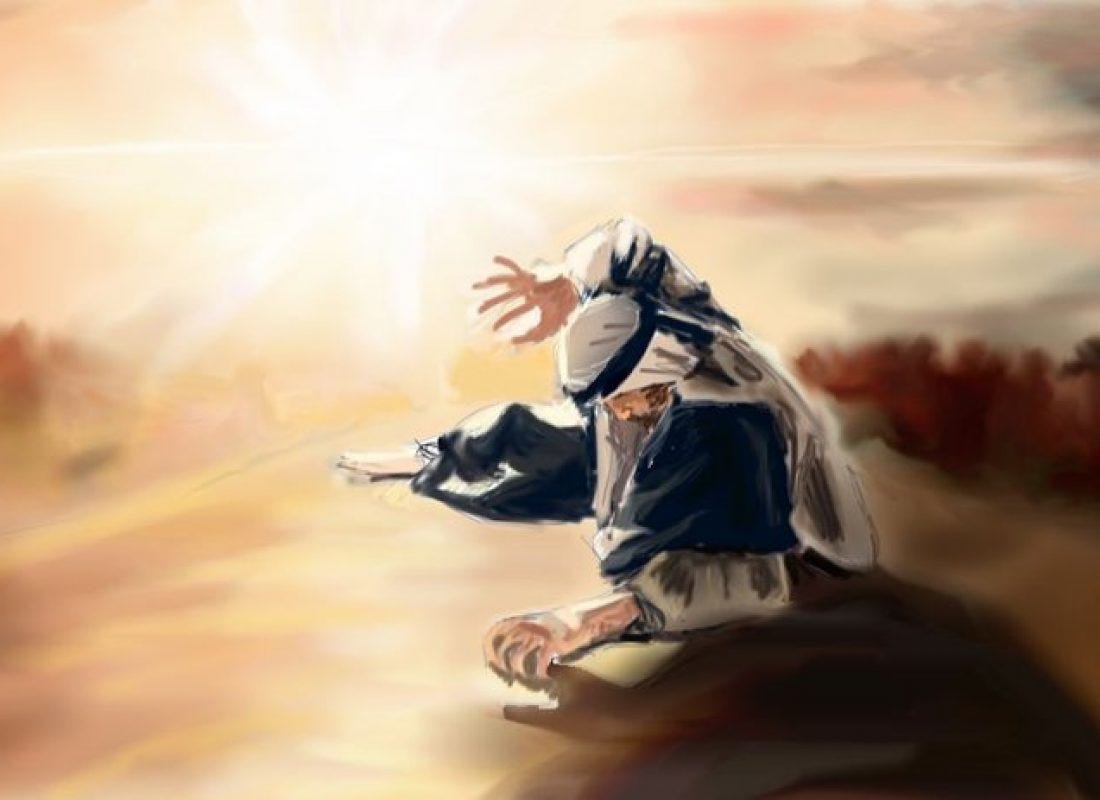If I could not see, hear, touch, smell, or taste the world, would I know a world outside myself even existed? Our senses are remarkable things—they are the interface between thought and object, between metaphysical and physical.
Our senses are so important to our understanding of the world, that we use them to describe things that aren’t physical, as metaphors for concepts easier to understand if described as things we can see, touch, smell, hear or taste. When we are suspicious of something, we say it smells fishy; there are similar examples for all the senses.
The one that draws me into today’s Daily Office readings, is sight. I often use the verb “to see” as a synonym for “to understand,” but there are nuances of usage involved. When I say, “I see what you mean,” it implies that up until that moment, I didn’t see (understand) it at all, or at best I only partially. It implies I now have new knowledge, a new way of thinking, or both. This happens time and time again in scripture, perhaps most famously to Paul on the road to Damascus. In fact, the story is told three times in The Acts of the Apostles, first as narrative and then (twice) as described by Paul himself. Acts 21:37—22:16 is the middle telling.
Paul recounts how, on his way to persecute the followers of Jesus in Damascus, he is suddenly blinded by a searing bright light, from which the voice of Jesus admonishes him for persecuting His followers and instructs him to go humbly to the leader of the Christians in Damascus. Paul’s companions take him there, and at the voice of the Christian leader his sight returns. He is baptized and commissioned to preach the gospel to the world.
In Mark 10:46-52, another blind man is given his sight. Bartimaeus, begging at the gates of Jericho, is very different from Paul. Society at that time was very harsh towards people with disabilities like blindness or deafness, believing these were divine punishments for sins committed by the afflicted or by their family. This is why Bartimaeus is an outcast, a beggar by the city gates. In all the clamor of people, however, Jesus hears the outcast calling him, even though all those around Bartimaeus keep telling him to shut up, to keep his place, to remain outcast. Jesus recognizes his faith, and he regains his sight because of it.
Paul’s hate blinds him even before being literally blinded on the road to Damascus. God’s love cures him, and he sees what God is really calling him to do. Bartimaeus, although literally blind, sees clearly that God loves him, that Jesus will hear the voice of the outcast. This is a new way of being, a new way of thinking, for all of us. It is a reminder that hate blinds, but love sees and is seen. “I once was blind, but now I see,” says the old song, and I can only pray that God grants me some measure of sight, of truly seeing what His love is.




